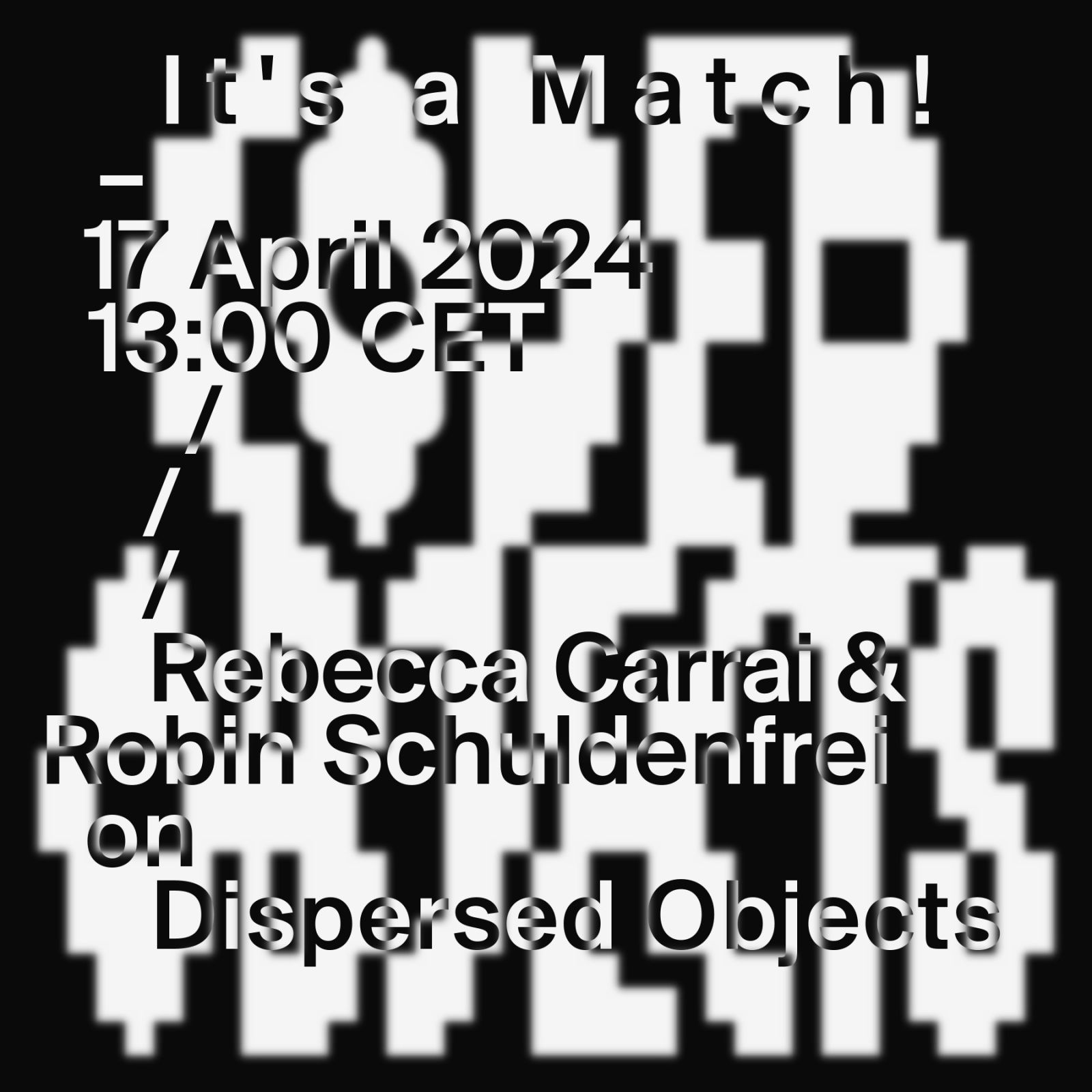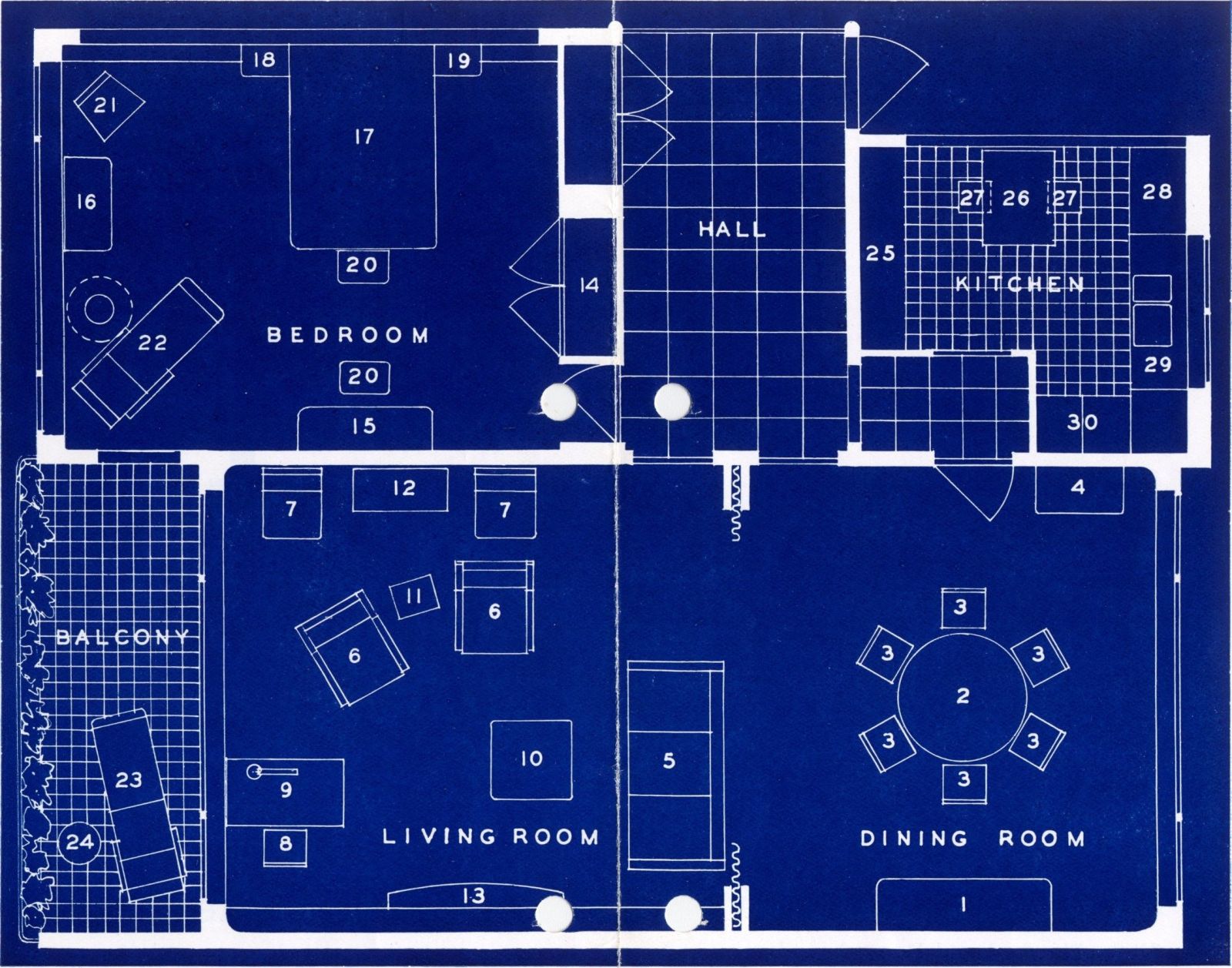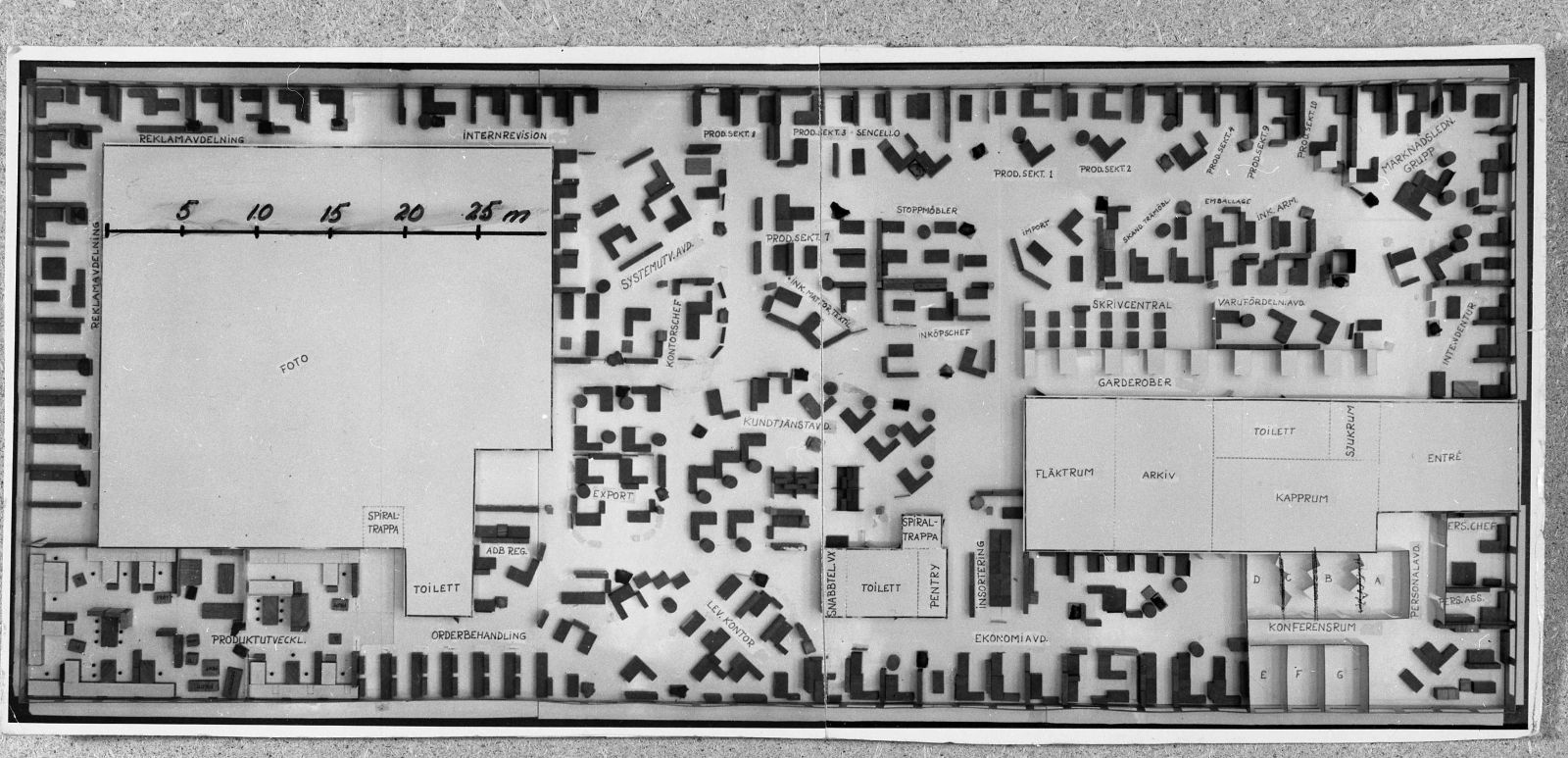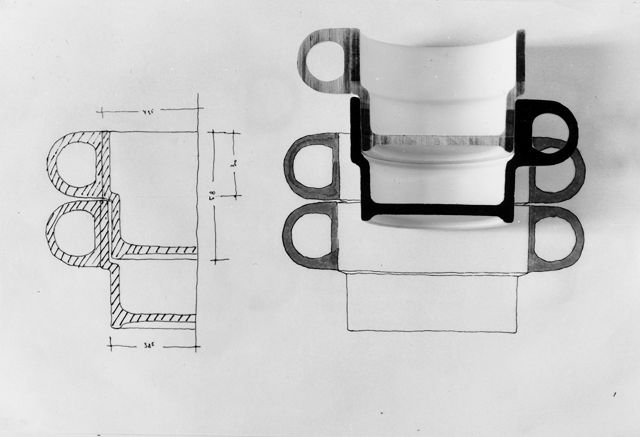Conversation
It’s a Match!
Rebecca Carrai and Robin Schuldenfrei on Dispersed Objects
Organized by the Lise Meitner Group "Coded Objects"

Rather than lectures, this event series is a staged conversation, clash or celebration of two people with two distinct positions. Sometimes a blind date, sometimes a fierce competition, sometimes a surprising counterpart, or the perfect fit, in these matches the two speakers will first each present their perspective on a given theme or project, to then discuss divergences or conflations with the audience. From fiery disagreements to harmonious affirmations, the conversation series organized by the Lise Meitner Group “Coded Objects” aims to refract perspectives on historical narratives as well as reconstruct creative processes. In the first session, architectural historians Robin Schuldenfrei and Rebecca Carrai, who recently joined the Lise Meitner Group, will discuss dispersed objects in their respective research.
Modern architecture’s engagement with the idea of the ‘minimal dwelling’, or Existenzminimum, and the severely curtailed number of objects meant to be brought by the owner into the architect-designed early twentieth century flat gives heightened status to those objects of circulation of the period. Whether from a political and theoretical standpoint, in the case of Hannes Meyer’s 1926 Co-Op Interior, with its ‘standard products’—folding chair, portable gramophone, foodstuffs in jars—designed to constitute the ‘apparatus in the mechanization of our daily life’ or from the former Bauhaus members’ exigencies of exile, evidenced in their designs made in England, after departing Germany, these spaces and their constitutive objects of a pared down life resonated for their dwellers. In her contribution, Robin Schuldenfrei argues that these select objects meant for circulation take on heightened importance in this context, and should be viewed as an updated notion of a Gesamtkunstwerk for the early twentieth century. Critically, these ideas are relevant today as we teeter on the brink of ecological disaster, our ‘throw-away’ culture of cheapened consumable domestic objects hardly abating in the face of climate crisis. Robin Schuldenfrei’s position is that we need a contemporary return to Existenzminimum, accompanied only by the essential objects of daily existence.
Nearly two-thirds of the floor plan at IKEA in 1972, including a large photo studio, was dedicated to image-making, as evidenced by an aerial view of “KH65”—arguably the sole workspace at that time. Already back then, what is today the world’s largest home furnishing company decided to strategically allocate most of its in-house resources towards producing concepts and images associated with its flourishing brand. In her contribution, Rebecca Carrai focuses on the moment in the corporate organization (1960s-80s) when IKEA went ‘global’ by systematizing its in-house immaterial labour and outsourcing the manufacturing of physical goods. Rather than examining tangible objects, she considers strategies that shed light on our late-capitalist system and that simultaneously allowed IKEA to evolve from a local, small-scale furniture retailer into a global leader in the distribution of home products worldwide. Highlighting the predominance of departments for the creation of virtual objects, the contribution also explores the human capital that allowed this global shift, including the imported knowledge of international (and many unknown) designers such as Tomas Jelinek—indirectly linked to the Bauhaus—who acted as the mediator between canonical and commercial histories of design.

Walter Gropius, The Flat of ‘37, brochure, 1937, Manchester, England. Pritchard Papers, Archives and Special Collections, University of East Anglia.

Inter IKEA Systems B.V.
Biographical Notes
Rebecca Carrai is a postdoc within the Lise Meitner Group "Coded Objects" at the Kunsthistorisches Institut in Florenz – Max Planck Institute. She holds a PhD in Architecture from KU Leuven. Her work delves into the intersection of interior design and architecture in the 20th and 21st century, incorporating material culture, capitalism studies and philosophy.
Robin Schuldenfrei is the Tangen Reader in 20th Century Modernism at The Courtauld Institute of Art, University of London. She specializes in modern architectural history with a focus on materiality and the object. Her latest book is Objects in Exile: Modern Art and Design across Borders, 1930–1960 (2024). Previous publications include Luxury and Modernism: Architecture and the Object in Germany 1900-1933 (2018) as well as numerous articles, essays and four edited volumes, among them: Iteration: Episodes in the Mediation of Art and Architecture, Atomic Dwelling: Anxiety, Domesticity, and Postwar Architecture, and, with Jeffrey Saletnik, Bauhaus Construct: Fashioning Identity, Discourse, and Modernism.
17 April 2024, 1:00pm
This event will be hybrid and take place in person at Palazzo Grifoni. There is no need to formally register to participate in person.
To participate online please register via Zoom in advance: https://eu02web.zoom-x.de/meeting/register/u50scumppjwsEtNyI5-EB2OCqhMZoKmkHoS1
Notice
This event will be documented photographically and/or recorded on video. Please let us know if you do not agree with the Kunsthistorisches Institut in Florenz using images in which you might be recognizable for event documentation and public relation purposes (e.g. social media).



